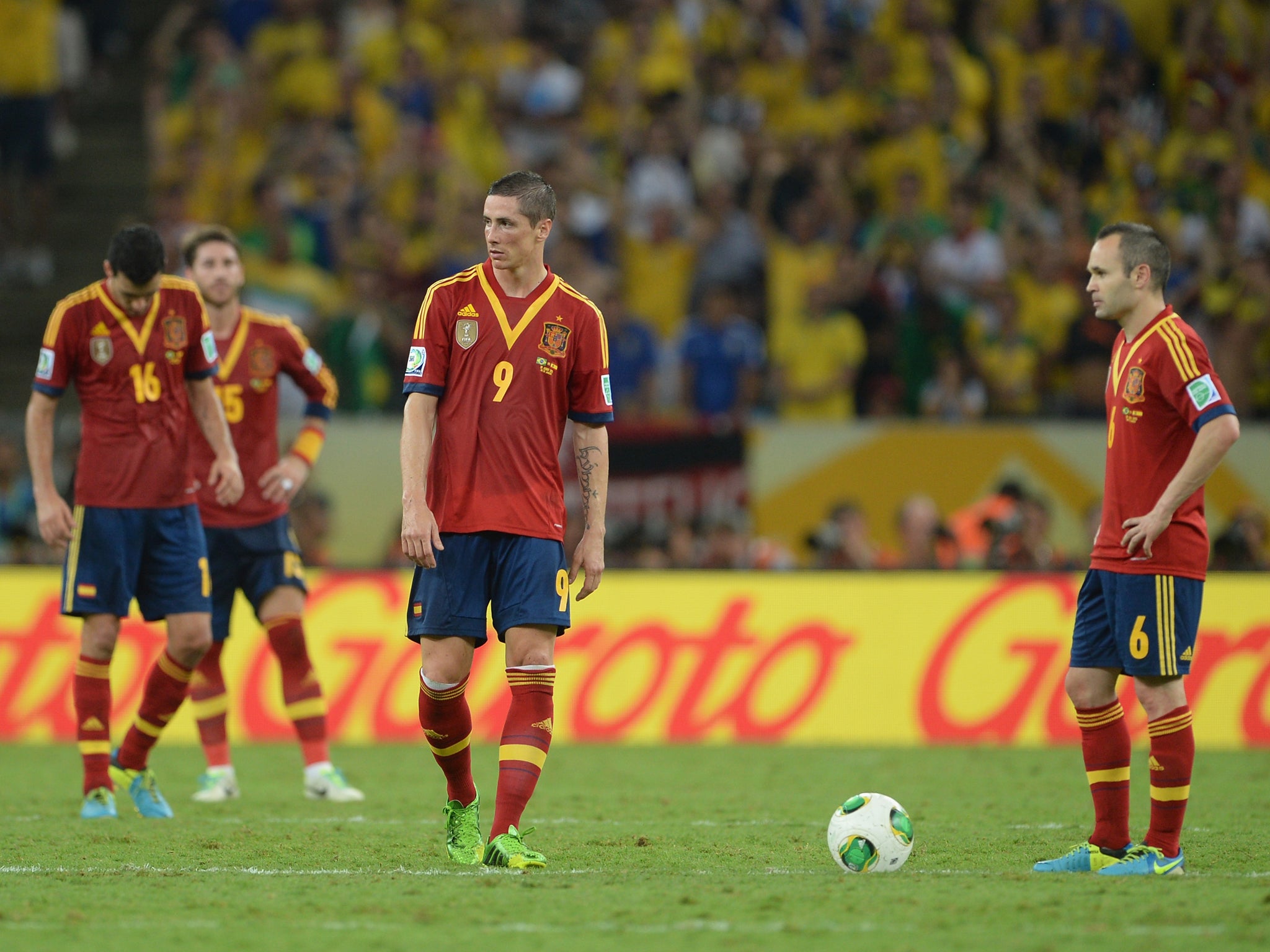Confederations Cup: Five issues Spain need to address before 2014 World Cup in Brazil
Can Vicente Del Bosque drop Xavi?

Your support helps us to tell the story
From reproductive rights to climate change to Big Tech, The Independent is on the ground when the story is developing. Whether it's investigating the financials of Elon Musk's pro-Trump PAC or producing our latest documentary, 'The A Word', which shines a light on the American women fighting for reproductive rights, we know how important it is to parse out the facts from the messaging.
At such a critical moment in US history, we need reporters on the ground. Your donation allows us to keep sending journalists to speak to both sides of the story.
The Independent is trusted by Americans across the entire political spectrum. And unlike many other quality news outlets, we choose not to lock Americans out of our reporting and analysis with paywalls. We believe quality journalism should be available to everyone, paid for by those who can afford it.
Your support makes all the difference.It was a rather unusual sight, on Sunday evening, as Spain – world and two-time European champions – were ripped to pieces by Brazil, whose last title was in 2007 and have barely looked like a meaningful team since.
The Confederations Cup is not the World Cup and of course Spain still have the resources to win in Brazil next summer. Last night they had David Silva, Javi Martinez and Cesc Fabregas on the bench.
But this was a tournament they desperately wanted to win, and they were profoundly beaten in the final. Clearly, then, there are some issues they need to address.
Fatigue
Too many of these players have just played too many games. It is not a radically different squad from that which played Euro 2008, or Confederations Cup 2009, or World Cup 2010, or Euro 2012. They have had one summer off since 2007, as well, of course, as exhausting domestic seasons. The final was Juan Mata’s 75 game of the season and he is not unique.
For many, it is starting to show. Xavi has not been the same player over the last 12 months or so, and neither has David Silva and neither has Cesc Fabregas. The workload is starting to take its toll.
Midfield balance
Many thought that playing Sergio Busquets and Xabi Alonso last summer was too conservative, but this summer’s plan of leaving Busquets alongside Xavi did not work perfectly either. Spain were vulnerable against Brazil’s counter-attacking at pace. They would certainly be a stronger unit with Alonso there, or the remarkable all-rounder Javi Martinez, but they would need to decide who to drop.
Xavi
So Vicente Del Bosque may have to confront a very difficult question: can he drop Xavi? For the last five years, Xavi has been Spain’s most important player, the tempo-setter, the director, the link between the futuristic passing style of Barcelona and Spain.
But he will turn 34 this coming season and has clearly lost a bit of sharpness from his legs, losing that puckish ever-presence which is a pre-requisite of his control. Maybe he will have a good pre-season and recover next year, but Spain need to start thinking about ways to use him differently – maybe further forward, maybe as a second-half game-breaker – with a different initial balance.
The front line
Last year Spain tried without a centre-forward, using Cesc Fabregas up front in the Euro 2012 final. In this year’s final they tried a more conventional front-line, with Fernando Torres up front and Pedro providing some pace and incision on the wing.
The problem, though, is that they do not have a striker as good as Fernando Torres in 2008 or David Villa in 2010. They could stick with one of those two, or try Alvaro Negredo, or use Fabregas there again, but none of the ideas are perfect.
The next generation
The last few years have been so successful for Spain that there is a backlog developing of their best young players. The current players are so good that there is little case for change. But that means they have the two best midfielders in Europe last season – Juan Mata and Javi Martinez – sitting on the bench.
Those two are just 25 and have lots of time left but there are more behind them – 22-year-old Thiago Alcantara and 21-year-old Isco, both of whom would be very useful next summer but who are currently not one but two or three steps removed from the first team.
Join our commenting forum
Join thought-provoking conversations, follow other Independent readers and see their replies
Comments